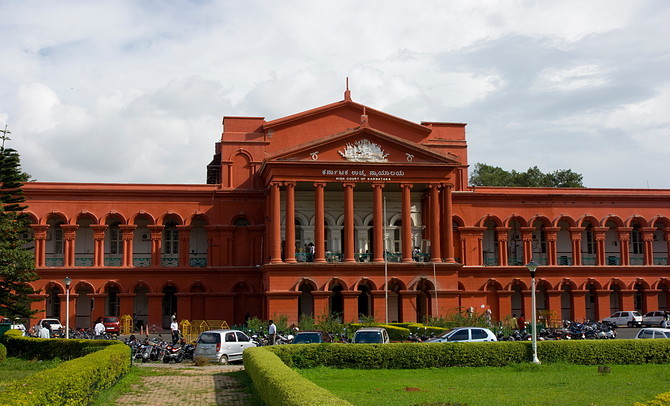
Karnataka HC: 'Imprisonment till last breath' can be imposed only by High Court or SC

The Karnataka High Court has reduced a murder convict’s sentence from “imprisonment till his last breath” to “life imprisonment,” allowing the possibility of remission after 14 years.
The High Court, which gave its judgment on an appeal filed by the convict recently, said that “such special category sentence can only be imposed by High Court or Supreme Court and not by trial court” as held by the Supreme Court in its judgment in the case of Union of India vs V Sriharan alias Murugan and others.
Two appeals were filed before the HC by Harish and Lokesh, the first and third accused in the murder of one D R Kumar.
Harish was in love with Radha, the wife of Kumar, and this led to the plot to murder the latter. On February 16, 2012, when Kumar was working in a field in Chollemarada village in Hassan district, Harish hit him on the head with a rod, kicked him on the head and chest and murdered him.
Also Read: Abusive words against PM Modi derogatory, not seditious: Karnataka High Court
Later, with the help of his brother Lokesh, he transported the body in a goods rickshaw and buried it in a vacant land.
Harish, Radha and Lokesh were put on trial and convicted by a sessions court in Hassan on April 25, 2017. Harish was sentenced to undergo imprisonment for life i.e., till his last breath, and a fine of Rs 50,000 under Section 302 (murder) of the Indian Penal Code.
He was also sentenced under Section 120(B) and Section 201 of the IPC and ordered to pay Rs 3 lakh to the two children of Kumar.
The HC bench of Justices K Somashekar and Rajesh Rai K upheld the conviction of Harish but said the sentence by the trial court was not correct.
“The sentence imposed against accused No. 1 by the trial court by directing him to undergo imprisonment i.e., till his last breath is concerned, in our considered opinion the said sentence is not sustainable under law for the reason that the Hon’ble apex court in the case of Union of India vs V Sriharan alias Murugan and others. In such circumstances, the sessions court cannot exercise such power to impose imprisonment to accused No. 1 till his last breath,” it said.
Also Read: Karnataka high court issues guidelines to foil human-animal conflict
The HC said the Supreme Court has mandated three tests — crime test, criminal test and rarest rare test — in such cases.
“So, for as the present case is concerned, both the crime and criminal tests have been satisfied against the accused but, rarest rare test is concerned, the prosecution failed to prove the same by leading cogent evidence that the crime was committed in a barbaric manner and hence the instant case would not fall under the category of rarest of the rare case. As such, the punishment awarded by the trial court by imposing the imprisonment to accused No. 1 till his last breath has to be modified to life imprisonment instead of the last breath of his life,” the HC said.
The HC also set aside all the charges against Lokesh. It said “the prosecution failed to prove his guilt by leading any cogent evidence”. He had been convicted by the trial court solely on the basis of the voluntary statement of the co-accused (Harish). “It is the settled position of law that the voluntary statement of the co-accused cannot be a base for conviction of other accused,” the HC said.
The petitions of the first and third convict were heard and a common judgement delivered by the division bench. The second convict (Radha) had not filed an appeal.
The bail and surety bond of Harish was cancelled and he was given two weeks to surrender before the trial court to serve his life imprisonment sentence.
(With agency inputs)

